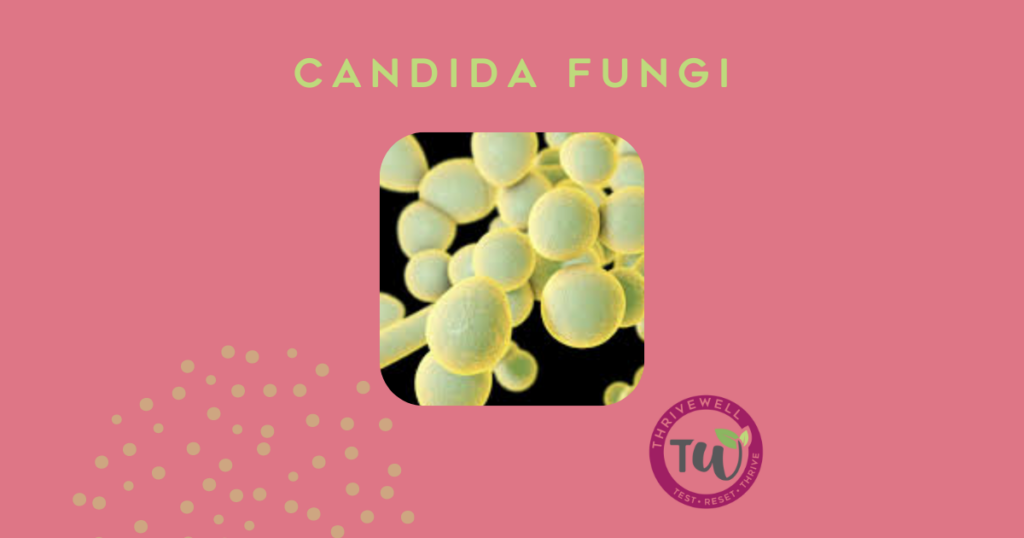Candida is a type of yeast that is found in the body. It is normally present in small amounts, but can overgrow and cause health problems if not kept in check. Symptoms of Candida overgrowth can include fatigue, brain fog, joint pain, mood swings and digestive problems. The blog post will discuss what is Candida and why test for it.
What is Candida and why test for it

Candida is a fungus that is often found in the mouth, intestines and vagina. In small amounts, Candida is harmless. However, when there is an overgrowth of Candida, it can cause a variety of health problems.
Candida overgrowth can occur when the immune system is weakened or when there is an imbalance of good and bad bacteria in the body. Candida can also overgrow if you take antibiotics, use birth control pills, or have a diet high in sugar and refined carbohydrates.
Symptoms of Candida overgrowth can include fatigue, brain fog, joint pain, mood swings and digestive problems. If you think you may have Candida over growth, it is important to get tested by a healthcare practitioner. Testing for Candida can be done through a blood test, stool test or urine test.
Treating Candida overgrowth typically involves making dietary changes, taking supplements and using anti-fungal medications. If you think you may have Candida overgrowth, talk to your healthcare practitioner.
What are the symptoms of Candida overgrowth
Candida overgrowth can cause a wide range of symptoms, many of which are vague and can be mistaken for other conditions. Some common symptoms include:
Fatigue
Brain fog
Joint pain
Mood swings
Digestive problems
If you are experiencing any of these symptoms, it is important to get tested for Candida. Left untreated, Candida can lead to more serious health problems.
How do you test for Candida overgrowth

If you think you may have Candida overgrowth, there are a few tests that can be done to determine if this is the case. The most common test is a blood test, which can measure the amount of Candida antibodies in your blood. Other tests include a stool test and a saliva test.
What are the treatment options for Candida overgrowth
There are a number of treatment options for Candida overgrowth. The most common approach is to use anti-fungal medications, either oral or topical. Some other treatment options include:
Diet: A diet that eliminates sugar and other refined carbs can help starve the yeast and promote healing.
Probiotics: Taking probiotics can help restore the balance of bacteria in the gut and help fight Candida overgrowth.
Herbal remedies: Herbal remedies such as oregano oil or garlic can also be effective in treating Candida.
Detox: A detox program can help clear out the toxins that are contributing to Candida overgrowth. There are a number of different detox programs available, so you should be able to find one that fits your needs. A detox program can help your body heal and get rid of the Candida infection.
How can you prevent Candida overgrowth
There are a few things you can do to help prevent Candida overgrowth from happening in the first place:
Avoid Sugar and other refined carbs. One of the best ways to prevent Candida overgrowth is to avoid sugar and other refined carbs. These foods will feed the yeast and can contribute to Candida overgrowth. Instead, focus on eating whole, unprocessed foods. This will help your body heal and get rid of the Candida infection.
Take probiotics regularly are a great way to help keep Candida overgrowth under control. Probiotics are bacteria that are good for your gut health, and they can help fight off Candida overgrowth. Taking probiotics regularly can help keep the balance of bacteria in your gut healthy and prevent Candida from taking over.
Keep your gut healthy. One of the best ways to keep your gut healthy is to eat plenty of fiber and probiotic foods. Fiber helps keep the gut healthy by promoting regular bowel movements. Probiotics are beneficial bacteria that help restore the balance of bacteria in the gut and help fight Candida overgrowth.
Practice good hygene. One key way to prevent Candida overgrowth is to practice good hygiene, especially when using public pools or hot tubs. Make sure to shower immediately after swimming and avoid touching your face while you’re wet.
Conclusion
Candida is a type of yeast that can overgrow in the body and cause a wide range of health problems. If you are experiencing any of the symptoms listed above, it is important to get tested for Candida. Left untreated, Candida can lead to more serious health problems. There are a number of treatment options available for Candida overgrowth, including diet, probiotics, and herbal remedies. You can also help prevent Candida overgrowth by avoiding sugar and other refined carbs, taking probiotics regularly, and practicing good hygiene.
If you’re looking to become a more healthier, vibrant version of yourself, check out my Heal your Gut, Heal your Body program. For more support please join my free Facebook Group Thrivewell where there will be extra tips and support to guide you along your journey or you can find me on Instagram.



